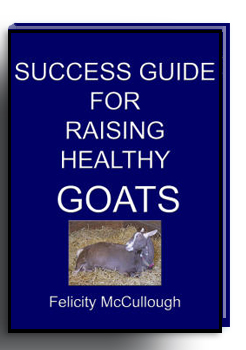How Long Do Goats Live?
How Long Do Goats Live?
The normal life span of a goat is 10 to 12 years, but some goats live as long as 30 years. The productive life of a dairy goat or fiber goat, during which you can expect the goat to produce a reasonable amount of milk or fiber, is about 7 years.
Ask the seller to make a list of medications, or vaccinations the goat has had, and the date of each. Ask for recommendations regarding future vaccinations. If you live in the same general area, find out who the seller's veterinarian is — good goat veterinarians are hard to find.
Ask what the goat has been eating and obtain enough of the same feed to last at least 1 week. If you plan to alter the feeding program, make the change gradually to ensure that your new goat remains healthy.
Before you take the goat home, ask the seller to trim hooves, remove horn buds, vaccinate, and perform any other necessary procedures. Even the most routine procedures cause some degree of stress, which is considerably reduced when the animal undergoes them in familiar surroundings.
Working with goats can be frustrating or rewarding: frustrating if you try to work against their nature, rewarding if you put their nature to work for you. By understanding why goats act as they do, you will better know how to treat them, and the experience will be more rewarding.
Goats are like cats in that they are curious and independent and do pretty much as they please, whether or not their behaviour pleases you. If you know what pleases them, you can get them to do what you want.
Goats are social animals. A goat should have at least one companion, which may be another goat or some other type of animal. No goat should be housed alone.
As soon as you put two or more goats together, one of them takes over. You can easily tell which goat is the herd boss — it's the one in the lead. The herd boss is usually the oldest doe, called the herd queen. The other goats won't move until the herd queen leads the way. If anything happens to the boss, the herd falls into confusion until a new leader takes control. When you visit a herd, if you don't give your attention first to the queen, she'll display jealous misbehaviour.
Goats protect themselves by butting enemies with their hard heads. They also butt heads with each other in play and to determine the pecking order. Baby goats play by pushing each other with their heads and will try to push against your leg or hand. Don't let them, because as a young goat grows up, pushing turns into butting.
If you teach your goats while they are young not to push or butt you, they will be easy to handle as they mature.
 |
 |
 |
 |
 |
 |
 |
 |
 |
 |
 |
 |
 |
Goat Lap Shop Home
Other Goat Articles
Photographic credits:
Goats, lifespan, life span, goat, years, dairy goat, fiber goat, meat goat, production, milk, seller, medications, vaccinations, date veterinarian, vet, eating, diet, feed, feeding program, change, gradually, new goat, healthy, take the goat home, trim hooves, remove horn buds, vaccinate, procedures, animal stress, familiar surroundings, working with goats, frustrating, rewarding, nature, treat goats, curious, independent, Goats, social animals, companion, alone, herd boss, lead, oldest, doe, does, buck, wethers, herd queen, leader, visit a herd, herd, attention, queen jealous, misbehaviour, butting, training, train goats, longevity,

Updated 5 March 2022 ©
External
links:
American Dairy Goat Association
American Goat Society
Dairy Goat Society of Australia
DEFRA
UK
National Pygmy Goat Association
Pygmy Goat Club
Welfare of Goats During Transport

